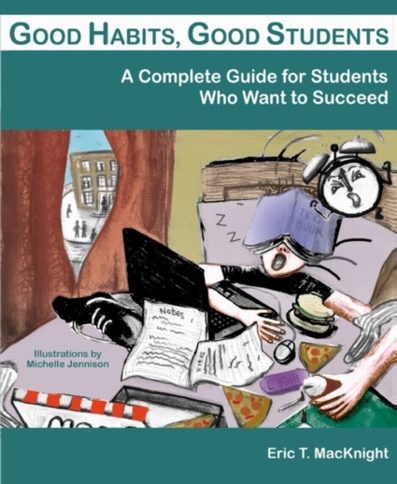It’s that time: end-of-year exams have either started already or will shortly. This excerpt from Good Habits, Good Students may help.
Getting Started
Read the instructions and skim all the questions of the whole exam before answering any questions. Be sure no pages are missing from the exam booklet. Be sure whether you should write your answers on the question sheet or on a separate answer sheet. Should you write in pen or pencil? Put your name on the exam booklet and on every one of the answer sheets. Use a highlighting pen to mark important information in the instructions or questions. If a question is unclear, write a note to the teacher explaining how you have interpreted it.
Comprehension Questions
Read the questions first and then the passage they’re based on. That way, you know what to look for when you read the passage.
Multiple-Choice Questions
If you aren’t sure, test researchers say your first hunch is more likely to be correct.
Know how much each question or section is worth, and spend most of your time on the most valuable questions.
Don’t get stuck on a difficult question. Skip it, answer the questions you know, and then come back to the difficult ones at the end if you have time.
Essays
Before you begin writing, brainstorm your ideas (web diagrams or mind-maps are excellent) and then plan out the structure of your essay.
State your thesis in the first paragraph.
Be sure that each body paragraph consists of one assertion plus all the evidence and argument needed to support it. Lead your reader smoothly from one paragraph to the next with transitions or linking phrases that reinforce the meaning of your argument.
In the conclusion, try to do more than simply re-state what you’ve already said. Take your ideas “one step further” by discussing the wider implications or adding your personal judgments.
If you have time, catch your reader’s interest by opening the essay with a startling statement, a quotation, or a brief anecdote. Then in your conclusion you can close nicely with a da capo (“from the top”) ending that returns to your opening by commenting on it, completing it, or adding to it.
Mathematics and Science Tests
Show all your work. Be sure your reasoning is clearly explained, as this is often just as important as the final answer. Never delete or cancel a solution until you have discovered a better one. We learn a great deal from our mistakes, and teachers will be able to help you make improvements if they can see your mistakes and understand where you’re making a wrong turn.
If you finish the test or exam early . . .
There are three possibilities: a) the test was too easy for you; b) the test was too hard for you; or c) your answers have been too hasty and careless. First, re-read the entire exam—questions and answers—making any needed changes or additions. Second, re-read it again, starting with the last question and working your way back to the beginning. Why? Reading it backward may help you catch a mistake you missed before. Finally, read through your answers to check for spelling and grammatical mistakes.

